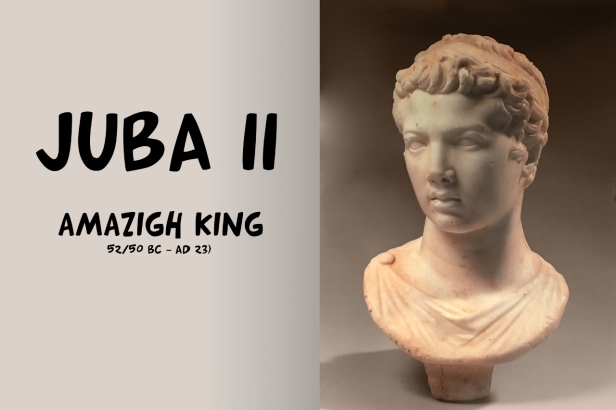
Despite the arrogance of modern historians towards the Amazigh (Berbers), the Romans and Greeks knew what they were talking about
Within half century of Juba’s death his scholarly renown was apparent. Pliny wrote that he was “more remembered for the quality of his scholarship even than for his reign, and Plutarch that “he came to be numbered as one the most polymatich scholars” and “the most learned of all kings”
Pliny so valued his erudition that he believed an apparent error in one of his works was the fault of copyists. Even the Christian scholar Tertullian felt that Juba was one of the great pre-Christian men of learning. He was compared with the famous Didymos Chalkenteros, the first century BC Alexandrian noted for his prolific erudition, and was honored in the academic milieu of the Gymnasion of Ptolemaios in Athens alongside Chrysippos of Soloi, the noted stoic philosopher of the latter third century BC.
At Gades in Spain, which had made Juba duovir, an inscription honored his learning. The idea of a literary king was intriguing in antiquity – “rex literatissimus, he was called – although scholarship among kings was not unusual. Archelaos of Kappadokia, Juba’s sometime father-in-law and host, wrote on natural history and the regions visited by Alexander the Great, and was a source for Pliny and Juba.
Juba’s ancestors has scholarly inclinations. From as early as the second century BC the Numidian court was known as an intellectual center, and Juba’s grandfather Hiempsal seems to have been an historian. Thus the Mediterranean world has seen many scholarly kings, but Juba was considered the outstanding exemplar of this combination of talents
Exerpt from “The world of Juba II and Kleopatra Selene” by Duane W. Roller
Books writen by Juba II
- Roman Archeology | ca 30-25 BC
- Resemblances | ca 30-25 BC
- On Painting | ca 30-25 BC
- Theatrical History | ca 30-25 BC
- The Wanderings of Hanno | before 25 BC
- On Euphorbion | after 25 BC
- Libyka | ca 25-5 BC
- On Arabia | 2 BC-AD 5
- On Assyria | 2 BC-AD 5
- Epigrams | after 25 BC
Also read on the same subject : Juba ll , the last pharaoh



Roger
At the moment, blacks without identity, Afro-Americans, have been instructed to deny the existence of the white peoples of North Africa.
In fact, the Cleopatra plot began with the film “The Gladiator”, in which the Numidian is black and dressed like an Oriental.